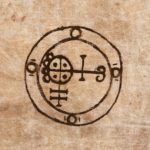Scottish Play
Over the intervening years, as I’ve casually studied some of the Shakespeare canon, I stumbled across an apocryphal story about The Tragedy of MacBeth, the play that is cursed. The original heading for this review? “The Scottish Play,” in bowing to that tradition of the play being cursed.
So the reason for the story that it is a cursed play? Seems that — this is entirely anecdotal — no supporting evidence is proffered — seems a theatre on hard times, economically would stage MacBeth then the owners would abscond with the finances, leaving the players, stage hands, and landlords in arrears.
“Go on take the money and run”
(Steve Miller Band)
So, true or not, that’s the idea. Turns out that other plays have more superstition, myth, and magic, but the fortune telling witches in MacBeth give it that special flavor.
Other interesting flavor nuggets? Play was probably written for King James, as he was an avoid paranormal guy. He wrote a text on demonology. Gives new meaning to the other title, Practical Demon Keeping
The retelling by the Nordic author? MacBeth. Or, relationship advice with Lady M?
- Sidebar note about the last link for Lady M relationship advice: perfect use for Comic Sans. Perfect. Appropriate.
Scottish Play
“Fair is foul, and foul is fair,
Hover through the fog and filthy air.”Exeunt.
- Three Witches, Act 1, scene1
Like signing along to a favorite song on the radio? I was repeating the chant as the witches entered. The other one I used, so frequently?
“Eye of Newt, toe of frog….”
Scottish Play
Desperate Housewives of … Glamis?
(Desperate Housewives allusion is lost on me.)
Or, how about? Extermination of political enemies the old way.
This one is so much funnier in Texas where there are a lot of possum.
Scottish Play
“Things at the worst will cease, or else climb upward
To what they were before.” (4.2.24)
Scottish Play
There’s so much of this play that I know by heart, and yet, so little that I understand until it is woven together in its elegant tapestry of deceit, naked ambition, and greed. Bonus: sword fights! Fortune-telling witches!It’s an exceedingly accessible and credible production. After the show, I was ruminating on why the “UT Shakespeare Winedale” — or whatever its proper name is — why this was such an accessible version of plays, from high comedy to high tragedy.
It’s an intimate theatre. No gulf between actors on the stage and the audience. To mine own ear? I surely do appreciate the effort spent to use the language the way it was written, and for that matter, to answer the question, why these shows have all been universally so well-done.
The original stage that this material was written for — I’ve been in the replica — Shakespeare’s Globe (Bankside) — and the plays seem to fit best with that kind of intimate setting. Whether the audience grasps the weighty history and nuances of the plot and story or not? Doesn’t matter as the essence, the sheer skill with language and emotion, and language loaded with emotion, all of that pours out from the stage.
Right into the audience’s lap.
When attending, after these long years, I’ve discovered that the best place to sit is at least one row back from the first row. Stay out of the splash zone, and stay out of the actors’ abilities to drag the audience into the play.
Scottish Play
Shakespeare at Winedale (Round Top, TX)
With its obvious tragic ending? Historically? The Scottish Play is the first appearance in literature of a “Knock-knock” joke.
“I pray you remember the porter!” (II.iii.7)
Scottish Play
I posted a version of the sigil, from the class material, devoid of actors’s images, timelines, and other visual clues. A professional associate looked at it, and tagged me back about astrology and magic, wondering when I stared practicing astrological magic.
Owing to its myths and superstitions? Each successful version of The Scottish Play has its own ritual protection.
“Cross yourself,
spin backwards three times,
then spit.”
This year’s class crafted a magical symbol to protecting them so their stars would not shine darkly.
Pretty much worked.
